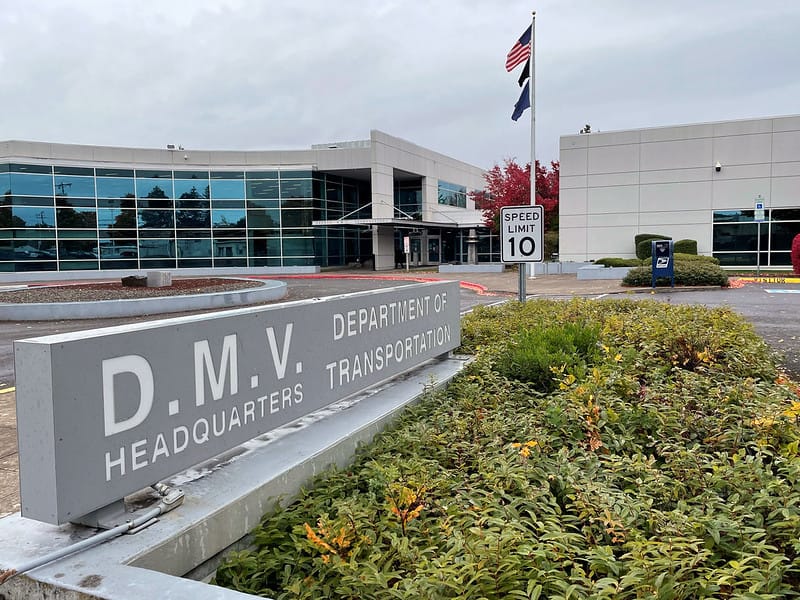(Editor's note: This story is the final piece from our summer intern, Jordan Donegan. I thank her for her excellent work and wish her all the luck in the world as she returns to school this fall - Chas)
House District 29 Representative and Joint Transportation Committee Co-Chair Susan McLain described the end of Oregon’s 83rd Legislative Assembly as the “worst two weeks of my life,” after a bill she and her colleagues had spent over three years developing collapsed. Just over two weeks later, Oregon Governor Tina Kotek called an emergency special session to vote on a proposal that included multiple elements from McLain’s original plan to solve Oregon’s transportation funding woes.
At a July 22 town hall meeting held at the Cornelius Public Library, McLain announced that she hoped to carry bits and pieces of House Bill 2025 into a smaller transportation funding solution for a special legislative session set to take place on Aug. 29, as Oregon has been faced with a “systematic crisis” after decades of underfunding, according to McLain. At the time, Kotek had yet to announce her short-term proposal expected to be voted on Friday. Kotek’s plan, which was unveiled on Aug. 7, included multiple parts of McLain’s proposals to improve Oregon’s transportation system.

McLain, who represents Forest Grove, Cornelius and parts of Hillsboro, says that she hopes to “simplify” and “modernize” Oregon’s transportation system. McLain’s and other legislators' solution to Oregon’s transportation crisis, House Bill 2025, was a multi-step plan and what McLain describes as the “best way to ensure a safe, resilient and multi-modal transportation system that serves all Oregonians.”
“A great deal of my time in the last three years have been spent on what we call House Bill 2025, which was a transportation package for this session,” said McLain. “We went around the state for over a year. We had 13 public hearings, we had 13 tours, and we went around and saw all of the facilities around the state in 13 different spots,” McLain continued.
When House Bill 2025 collapsed, the Oregon Department of Transportation (ODOT) was left with minimal funding for road maintenance and carrying out other transportation projects after having already lost $15 million, according to McLain. With no funding to address them, McLain says nearly 5,000 road miles and 2,355 bridges are in poor condition.
McLain explained that this setback has not stopped her from advocating for Oregon’s transportation needs. McLain said she is currently “working with legislators, the Governor and her staff, and community members on a path forward.”
“We were not finished with it for 2025, but we made a commitment on how we could finish it, and I’m trying to get them to export that language out of 2025 into this special session bill,” McLain said.
McLain said she is putting forward her best effort to “preserve” House Bill 2025’s transportation package. “Truly, I just want you to know that we are trying really diligently to try and make sure that we’re doing a good job of trying to preserve what we can in the way of the 2025 Transportation Package,” said McLain.
McLain is also hoping to “modernize” Oregon's weight-mile tax for heavy trucks, a system she describes as "over 20 years old” with “78 layers of tax categories.” She would like to establish modernized revenue tools, including a "privilege tax,” a tax on the "privilege" of using the roads in the state of Oregon. “We call it a ‘privilege tax,’ and that privilege tax is the privilege of using the roads in the state of Oregon, and so it could go into the highway funding and could be used for things that we wanted to use it for to maintain our systems, and so that was extremely important,” said McLain.
Many of the priorities McLain outlined in her town hall meeting, such as “making sure that we are keeping our commitment to our cities and counties of a 50/30/20 split,” have now become key points in Kotek’s proposal announced on Aug. 7.
Kotek’s proposal aims to try and prevent ODOT from having to layoff employees and ensure they do not end up with a budget shortfall. Her plan includes a six-cent gas tax increase, a 0.1% payroll tax hike and higher vehicle registration fees. Much like House Bill 2025, Kotek proposed that half of state highway revenues go to ODOT while the other half goes to cities and counties under a 50/30/20 split.
“In the weeks since the adjournment of the legislative session, my team and I have worked every day with legislators, local partners, and key stakeholders to zero-in on a focused solution for the immediate crisis in our transportation system,” Kotek said in a press release. “I am confident that lawmakers will step up this month to avert these layoffs and I appreciate their partnership in getting to the other side of this crisis,” Kotek continued.
While Kotek’s proposal addresses the immediate stabilization of Oregon’s transportation budget, McLain announced her own goals for the weeks leading up to the Aug. 29 legislative session in a Cornelius town hall meeting. McLain said that she “really has some hope” as she aims to preserve the pieces of House Bill 2025 that she’s been working on for more than three years.
As the Aug. 29 special session approaches, McLain has continued to outline her priorities for Oregon’s transportation.
“We are coming back to modernize transportation and we are looking at vehicle miles travel,” said McLain. “Let's talk about the future, and let's commit that if we can get it put together that we will lower other fees and taxes,” she continued.
McLain has framed her work around maintaining a functioning transportation system that is accessible to all Oregonians while limiting costs. “The story is that we want to make sure that your everyday living costs can absolutely be doable… but your fee is going to go up if the transportation system isn’t functional for those grocers or for those people who are transferring groceries,” she said.
McLain says that her drive that fueled her to attempt to stabilize Oregon’s transportation system has consumed nearly every aspect of her life.
“And if I sound passionate, I am living this day and night,” McLain said. “I am waking up in the middle of the night and having nightmares. Because there’s just so much to understand and take in, and basically, work on to make this system the best it can be and make it something we can afford to pay for, so I get passionate,” she continued.
Even in the “shorter legislative session,” McLain has continued to emphasize that her work and advocacy must continue to move forward, “I don't put three years of my life into something with pride without expecting to get results,” she said. “Is it perfect? No. Is legislation or policy-making perfect? No. So you just have to keep going with whatever conditions are put in front of you, and that’s what we’re doing right now,” McLain said.











